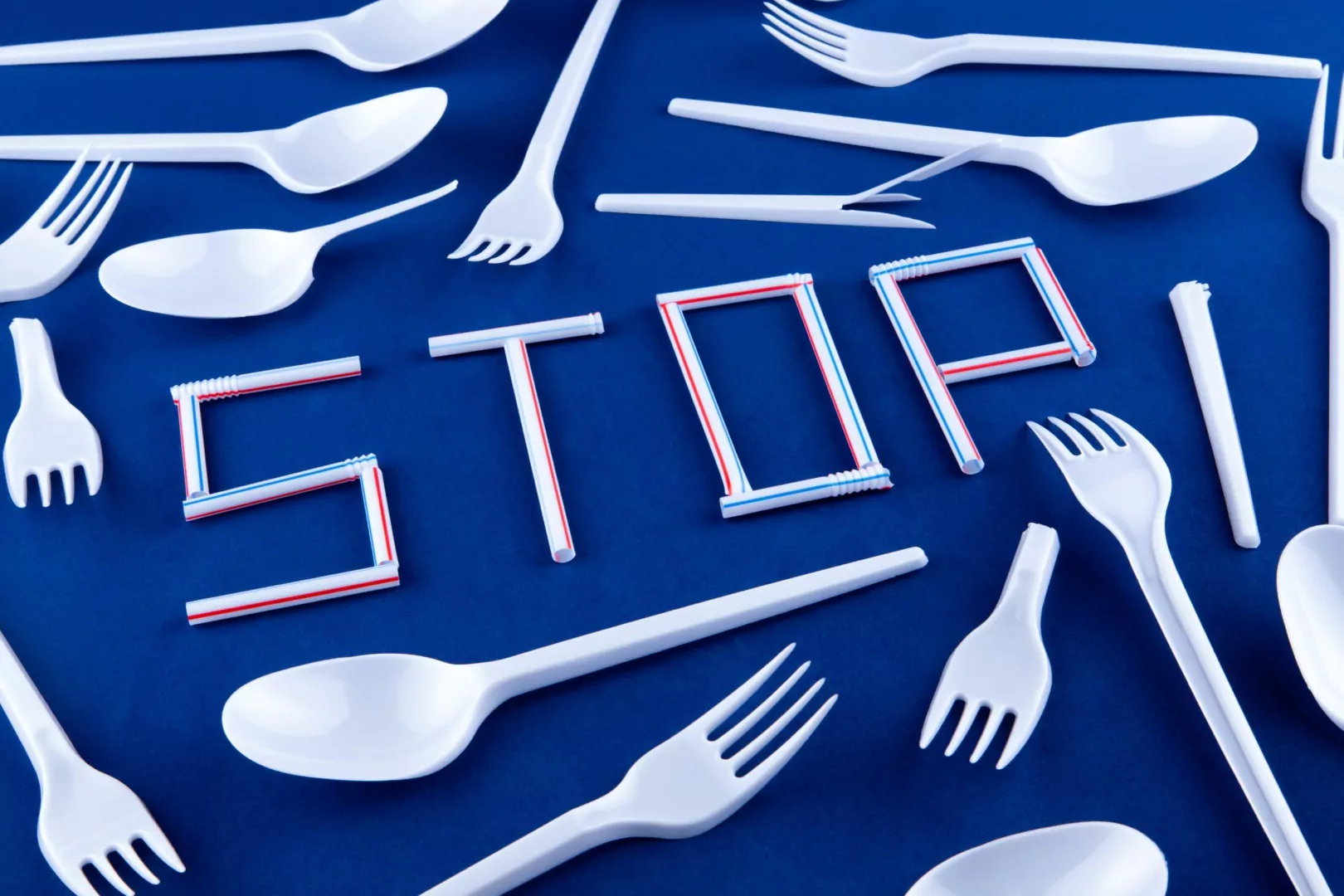The government is debating an emergency ordinance on Wednesday immediately banning disposable plastic products such as ear sticks, cutlery, plates, drinking straws or food containers made of expanded polystyrene. In addition, companies using some disposable plastic products, such as drinking glasses, will have to price them separately. Public authorities will also be obliged to set up a public system for the separate collection of PET from 1 January 2022.
Urmărește mai jos producțiile video ale Economedia:
- articolul continuă mai jos -
With this ordinance, the government will transpose a European directive adopted two years ago, which bans several categories of products.
Thus, as soon as the emergency ordinance enters into force, the following single-use plastic products will be banned from the market:
- Ear swabs (except medical)
- Cutlery (forks, knives, spoons, chopsticks)
- Plates.
- Drinking straws (except medical)
- Drink stirrers
- Sticks that attach to balloons or support balloons
- Food containers made of expanded polystyrene, such as cans with or without lids, used to contain food products which:
(a) are intended for immediate consumption, either on the spot or as a take-away;
(b) are usually consumed out of the container;
(c) are ready for consumption without further preparation such as cooking, boiling or heating, including food containers used for fast food or other ready-to-eat meals, with the exception of beverage containers, plates, packets and flexible film containing the food.
8. Beverage containers made of expanded polystyrene, including their stoppers and lids
9. Drinking glasses made of expanded polystyrene, including their lids.
At the same time, economic operators marketing a range of single-use plastic products will be obliged to offer the consumer a choice of reusable alternatives, suitable and sustainable alternatives or plastic-free alternatives at the point of sale, to apply a selling price for the single-use plastic products supplied and to clearly mark on the sales documents the price of the single-use plastic products supplied and display the value in a visible place at the point of sale for the information of final consumers.
These are the following products:
- Drinking glasses, including their lids.
- Food containers, such as cans with or without lids, used to contain foodstuffs which: a) are intended for immediate consumption, either on the spot or as take-away food; b) are usually consumed from the container; c) are ready for consumption without requiring further preparation such as cooking, boiling or heating, including food containers used for fast food or other ready-to-eat meals, but excluding beverage containers, plates, packets and foil of flexible material containing the foodstuffs.
In addition, from January 1st, 2022, local authorities are obliged to organize, manage and coordinate a public system for the separate collection of PET for recycling. This includes beverage bottles up to three liters, including their caps and closures. Exceptions are glass or metal beverage bottles with plastic caps and closures and beverage bottles intended and used for foods for special medical purposes.
Edited for English by: Service For Life SRL

 Sursa foto: Unsplash / Volodymyr Hryshchenko
Sursa foto: Unsplash / Volodymyr Hryshchenko





























